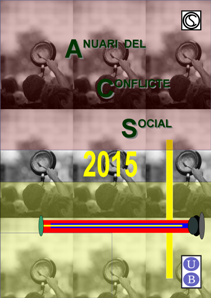15. From Territorial Fights to the Use of Children for the Commission of Criminal Acts in Antioquia, Colombia
Keywords:
Territorial fight, juvenile offenders-hitmen, drug trafficking, criminal organizations outside the law in MedellinAbstract
The violence planted by the head of the Medellin cartel, Pablo Escobar Gaviria, still lags in the life of the Antiochian territory. This well-known person, listed as one of the most famous criminals in the world, did not only rule as a drug lord, but he also commanded the business of life and death, the souls and the wishes of our children and young people throughout the Colombian territory. As a result, in the communes of the city of Medellin and in the surrounding municipalities, a new way of living and interacting culturally gradually arose.
In a context of high crime, the strong and solid Christian foundations coming from old times and which were compatible with a hypocritical way of acting, had already prepared the psyche of younger people and teenagers to think and feel according to the ideology of the capo: “la vida no vale nada” [life is worthless]; “you can get easy money with no effort;” “you can take other people’s life and material goods without problem because of your legal impunity as a minor...” In just under three decades, such social referents as the “parlache” [Colombian criminal slang], the “hitmen” and the “prepayments” became the starting point of an unprecedented phenomenon: the use of minors as absolved criminals who are judged as criminally irresponsible by the Colombian.
Downloads
Published
How to Cite
Issue
Section
License
AUTHORS RETAIN COPYRIGHT. CREATIVE COMMONS
The authors who publish in this journal agree to the following terms:
- The authors retain the copyright and grant the journal the right of first publication of the work, which will be disseminated following the Creative Commons Attribution license.
- Authors are free to establish additional independent contractual agreements for the non-exclusive distribution of the version of the work published in the journal (such as publication in an institutional or thematic repository, their personal website or a book), provided have your initial publication in this journal recognized.
- Texts will be published under a Creative Commons Attribution License that allows others to share the work, provided they include an acknowledgement of the work’s authorship, its initial publication in this journal and the terms of the license.
- Self-archiving of pre-print and post-print versions is allowed.
Privacy statement
The email addresses and names entered in this publication will be used exclusively for the purposes declared and will not be used for any other urposes or made available to third parties.







